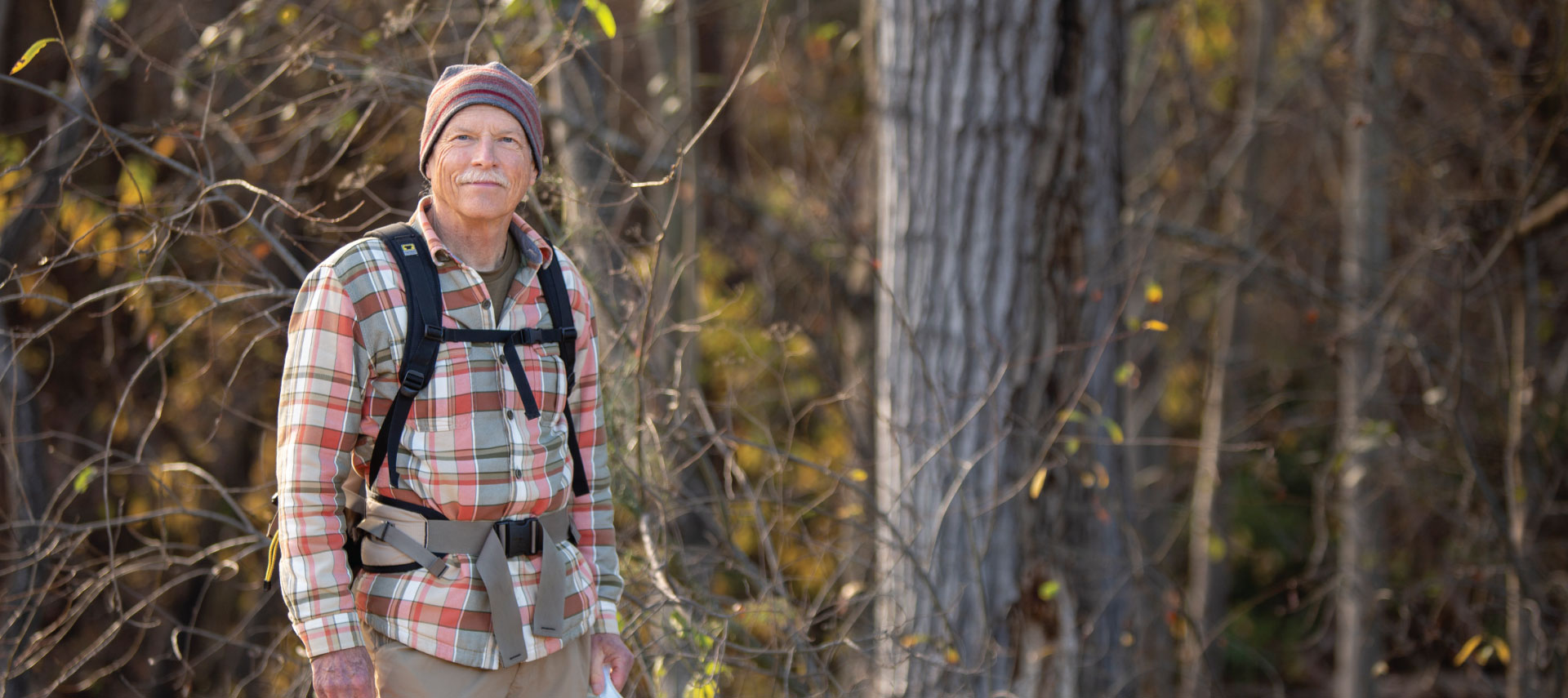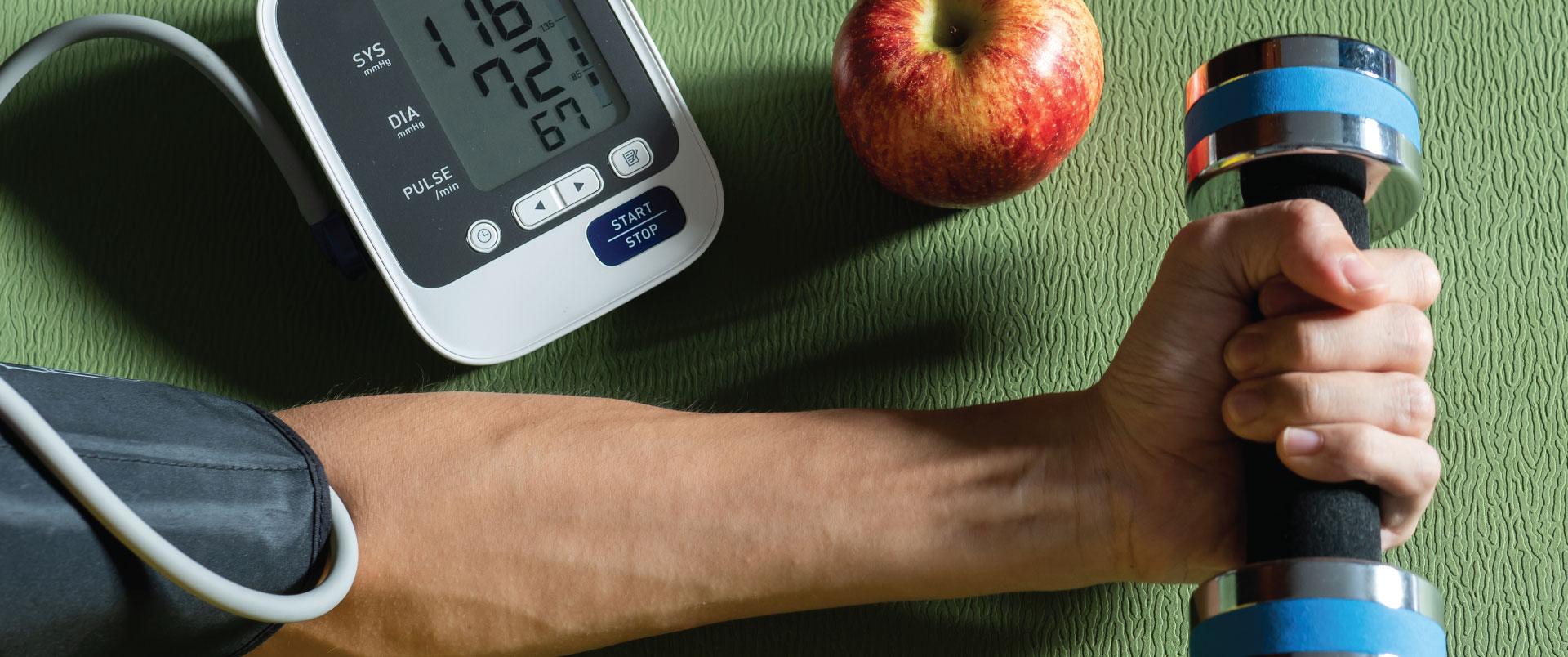
Coming back after open-heart surgery
For Steve Jackson, exercise is neither work nor play; it’s a lifestyle — and he was committed to returning to that way of life, even after a quintuple bypass and treatment for atrial fibrillation at age 75.
For years, Jackson routinely hiked and biked, climbing steep hills and barreling down mountains. He’d commuted to work by bike for decades, sometimes up to 25 miles a day.
So, soon after his open-heart surgery and atrial fibrillation treatment were complete and he got the go-ahead from his doctors, Jackson signed up for the Cardiac Rehabilitation program from Community Hospital’s Tyler Heart Institute. Jackson worked with Joe Yeary, a cardiopulmonary clinical specialist, to learn how to reduce his risk for heart disease, manage symptoms in a safe environment, and maximize his fitness activities.
"Steve’s goal was to get back to the level of exercise he normally did," Yeary says. "Probably the biggest thing he got from the program was learning how to monitor his heart and how fast he should progress in his exercise, as well as how to reduce the risk of future heart problems."
Every week during the eight-week program, Jackson was to set a goal for himself. The goal-setting stopped after the first couple of weeks since he was so motivated; he kept surpassing his own goals.
"It takes a certain kind of spirit to do that level of exercise," says Yeary, "particularly after having had such a serious, significant surgery. With Steve, at 75, so quickly able to get back to his same level of activity, it tells the rest of us recovery is possible."
The cardiac rehab program was great, a lot of fun. Joe knows so much about heart health and therapy. I was disappointed when I graduated because I was learning so much from him.
— Steve Jackson
For some people, the program’s value is mainly education and information to learn about their health and well-being. For others, the focus is on the importance of monitoring their vital signs, while exercising, particularly while they recover, to build confidence.
"Some patients seek guidance as they progress and want to know how quickly they will progress, which is about managing expectations," Yeary says. "They may think, "OK, next week I’ll go back to my usual routine. That’s unrealistic. Actually, our fitness levels can decline very quickly. If we have been in the hospital for a while, we 'decondition.' But, through cardiac rehab, we can bring about change in the patient’s body."
Jackson had been taking excellent care of his body, through his active lifestyle, good diet, and annual physicals. But he couldn’t change his genetics: His father died of a heart attack at age 44.
For a while, he ignored the signs of trouble. Sometimes, Jackson found he could ride his bike up and down hills without trouble, but the following week he’d have to get off the bike and walk it up the hill. He also dismissed pain radiating down his right arm and up into his jaw.
Then Jackson encountered a man in distress near Old Fisherman’s Wharf. He could tell the man was having a heart attack, and got help. "I could recognize the signs of heart trouble in a stranger," he says, "but I was denying it in myself."
He saw his doctor, was referred to a cardiologist, and then scheduled for an angiogram, a test to see whether blood flow to his heart was being blocked. It was — to a degree that required open-heart surgery and coronary bypass.
Dr. Gregory Spowart performed the quintuple bypass, restoring blood flow. But the next day, Jackson’s heart developed an arrhythmia, an irregular heartbeat caused by malfunctions in the heart’s electrical system. His heart was shocked back into rhythm twice, then he was put on medication, and later had a catheter ablation by Dr. Steven Fowler to block abnormal electrical signals and restore the normal heartbeat.
"My lifestyle is all about feeling good, feeling engaged in life, but I learned, sometimes living a healthy lifestyle is not enough," Jackson says. "Sometimes you need to pair it with medicine and medical expertise to make sure you’re up to the challenge of that active life.
"The cardiac rehab program was great, a lot of fun. Joe knows so much about heart health and therapy. I was disappointed when I graduated because I was learning so much from him."

Cardiac Rehabilitation

Community Hospital’s 8-week Cardiac Rehabilitation is a medically supervised exercise and education program for those with heart disease.
Participants at all levels learn how to reduce their risk for heart disease, maximize fitness, and manage symptoms in a safe environment.
People with any of these cardiac diagnoses or interventions will benefit from the program:
- Heart attack
- Heart failure
- Angina
- Angioplasty/stent
- Coronary artery bypass surgery
- Valve repair or replacement surgery
Assessment
The program starts with a comprehensive assessment by clinical staff, which provides the basis for an individualized treatment plan that takes into account your medical history, symptoms, functional capacity, risk factors, and personal goals. Each participant receives an individualized plan that includes:
Education
- Coronary artery disease: diagnosing and treating
- Exercise and your heart
- Risk factors for heart disease
- Setting SMART goals
- Stress management
- Emotional aspects of heart disease
- Healthy eating for your heart
- Your heart medications
Monitored exercise
- Supervised exercise including telemetry (EKG) monitoring
- Blood pressure monitoring
- Symptom recognition and management
- Personal exercise prescription
- Cardiovascular, strength, and flexibility training and progression
- Guidelines for an independent exercise program

